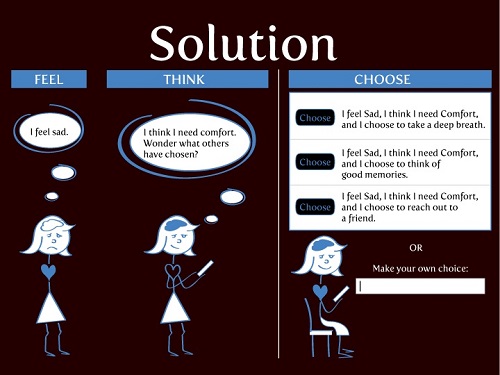Although it seems counterintuitive, research suggests that receiving counseling through video conferencing is as effective as receiving it in person. For conditions ranging from post-traumatic stress disorder to illness-related depression to chronic pain to substance use issues, people can achieve desired treatment outcomes through telehealth counseling sessions.

Disclosure: I offer evidence-based counseling protocols via telehealth through HIPAA-compliant SimplePractice and am listed in Psychology Today’s database of providers. I can offer counseling services only to residents of Virginia.
I have been studying research on electronic delivery of counseling services since 2008. I was part of several startups attempting to take a counseling software platform and a substance use disorder treatment mobile application to market.
In 2013, the popular term used in the field was “mHealth” for “mobile health.” I presented at the mHealth Summit in 2012. (The mic didn’t work at the conference so I rerecorded my presentation here.) Here’s the content for a related presentation I made at the Virginia Counselors Association in 2013.
My point is that research has reported on the effectiveness of electronic delivery of counseling protocols for over a decade.
I have contributed to developing online counseling software, have researched it, and have both offered online counseling and received it. My personal experience corroborates the research data.
The easiest ways to get online counseling are to find a licensed counselor who offers telehealth counseling or to use an online counseling service with licensed practitioners. In the United States, licensing occurs by state so the counselor needs to be licensed in the state in which an individual resides.
Counselors can apply to be listed in Psychology Today’s database of therapists. If they pass Psychology Today’s screening process, they can pay a monthly fee to keep a current listing. Once database users indicate their location, the site offers a menu of options for conducting a search, including “Online Counseling.” Clicking or tapping that option reveals a list of counselors who offer telehealth counseling services in one’s area.
(I found the assistance of Melanie Bosco, LPC through online counseling service Talkspace very helpful when I needed extra support upon learning of my father’s neurocognitive disorder. She offers cognitive behavior therapy and is licensed in Virginia. In the Blacksburg, Virginia area, Stephanie Fearer, LCP, offers a variety of evidence-based protocols through telehealth counseling services.)
Although individuals will have their own questions to ask, here are three specific questions I recommend asking a potential online counselor:
- Does the telehealth software we will use meet federal regulations to protect my private health information? Is the software HIPAA-compliant?
- What are the evidence-based counseling protocols you offer for the conditions I have?
- What percentage of your clients achieve their treatment goals? How effective is what you offer?
The answer to #1 needs to be “Yes.” [Updated 3/14/20: If HIPAA-compliant video conferencing is not available, your counselor may ask you to sign a release indicating you understand that is the case.]
The answer to #2 needs to at least exist. The answer to #3 needs to be answered without defensiveness and in a way that makes sense to the listener. Simply put, we need to receive as many reassurances as possible that we are receiving value for the precious dollars we are spending.
I was a teacher for nearly a quarter of a century before I studied counseling and earned a master’s degree in 2006. In my experience working with people of all ages in stable times and challenging times, when people simply wish to feel better and do better, counseling can help.
. . . . .
The accompanying image by Kelsey Sarles demonstrates the mobile version of our startup’s cognitive behavior therapy-based counseling software platform. We engaged with a research hospital for a pilot study that cleared the Institutional Review Board (IRB) but did not receive sufficient enrollment. Our efforts to develop counseling software were regretfully abandoned in 2013.
The views expressed are mine alone and do not necessarily reflect the positions of my colleagues, clients, family members, or friends. This content is for informational purposes only and is not a substitute for medical or professional advice. Consult a qualified health care professional for personalized medical and professional advice.

